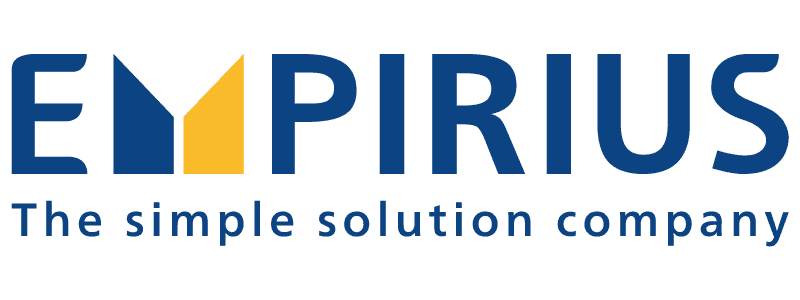E3 exclusive interview: Quo vadis, SAP Basis?


E3: SAP customers have been relying on SAP Basis or SAP infrastructure automation for around 20 years. Where are we today, where is the journey heading?
Marcus Bogenstätter, Empirius: Standardized interfaces for SAP R/3, including for monitoring, backup and job scheduling, enabled SAP to create good options for automating business processes and SAP system operation right from the start. Over the years, companies have further optimized and perfected operations on their own, with SAP Solution Manager and with the help of third-party products. Since 2005, we have also specialized in one automation topic, namely the automated creation of SAP system copies; later (editor's note: 2021), the radius was extended to automated system management as a "central point of management" with the Epos suite or platform. For example, with the task area of SAP kernel or database updates of any databases, including automated starting/stopping of SAP systems. Or simply the concerted restart of several servers, taking into account the dependencies of the SAP systems running on them. This means that the SAP Basis responsible for SAP system operation can now automatically manage, control and monitor various important tasks and activities required by an SAP user from a central point and a web UI. All while taking into account the individual requirements. However, SAP's cloud strategy, including SAP Rise, is associated with a change here. However, according to our findings, this has not yet been fully spelled out. Or to put it another way: There are still loose ends.

Marcus BogenstätterChief Technology Officer, Empirius
E3: What does change mean in concrete terms? What does it mean in terms of the future role of SAP Basis?
Bogenstätter: Due to the end-of-life of SAP Business Suite at the end of 2027, many customers are currently migrating to the technology successor S/4 Hana, often at the same time as moving to the SAP Cloud, i.e. SAP Rise. The change is that SAP is taking over a more or less large part of SAP Basis routine activities with its cloud offering Rise - but by no means all of them. The coordination of downtimes remains with the customer's Basis, in addition to the activities that remain with Basis anyway. It would be important for customers to retain an overall view and control of all SAP Basis-related tasks. Concrete example: How can we plan and minimize downtimes in the cloud, for example during a kernel update with a stop and start of the system including the database, in line with requirements and with pinpoint accuracy?
E3: To what extent does SAP Rise with Cloud influence the use of SAP Basis automation solutions and thus the activities of the providers of such solutions?
Bogenstätter: The future will show. If providers of SAP Basis automation solutions do not have access to SAP Basis-relevant parameters due to SAP specifications - whether for licensing or technical reasons - then the challenge is great. However, this still leaves the activities that are not included in SAP Rise. Examples: Certificate management, security notes, parameter monitoring or compliance checks. At present, some SAP customers have signed an SAP Rise contract, but the Rise transition has not yet been completed. It is also important to note that a certain number of SAP S/4 customers continue to use their on-premises environment. It looks like things are currently in a state of flux. We are not on red alert at the moment. In any case, our Epos license sales are increasing.
E3: But Empirius is still keeping a close eye on the SAP Rise issue, isn't it?
Bogenstätter: Of course. We are also making concrete efforts to promote dialog with a solution-oriented view together with SAP. Our aim is to find and use an interface that is flawless in terms of licensing law so that customers can use our Epos platform and SAP Basis teams are supported with automation solutions for the various requirements. From our point of view, there are actually three different levels to the problem-solving complex: SAP, customers and us.
E3: What does Empirius recommend to SAP Basis teams and customers?
Bogenstätter: When it comes to the cloud and therefore SAP system operation in connection with Rise, customers should definitely involve their own SAP Basis. Alternatively, SAP Basis should ask to be included in the contract negotiations regarding the provision or takeover of service levels to be provided.
E3: Irrespective of SAP Rise, what is Empirius' further or future product strategy?
Bogenstätter: We assume that the topic of SAP Rise and SAP Cloud can, to put it bluntly, be cleared up. We continue to focus on our Epos platform as a "Central Point of Management" solution with currently 14 apps that can be used to automate a large number of SAP Basis tasks. An important innovation for us and our customers was provided with version 24.9, namely the Admin Engine. We will gradually expand this engine for smaller ad-hoc SAP Basis tasks. With even more flexible SAP Basis automation, which will bring further efficiency benefits. We also plan to make Epos available for SAP, but also for non-SAP environments. For example, for SAP customers who are looking to use SAP for ERP on-prem or with an SAP service provider, but use Salesforce for CRM, Workday for HR or Kinaxis as an APO replacement. Another area that we have been working on for some time is identity management. Specifically, identity management at application level.
To the partner entry:





